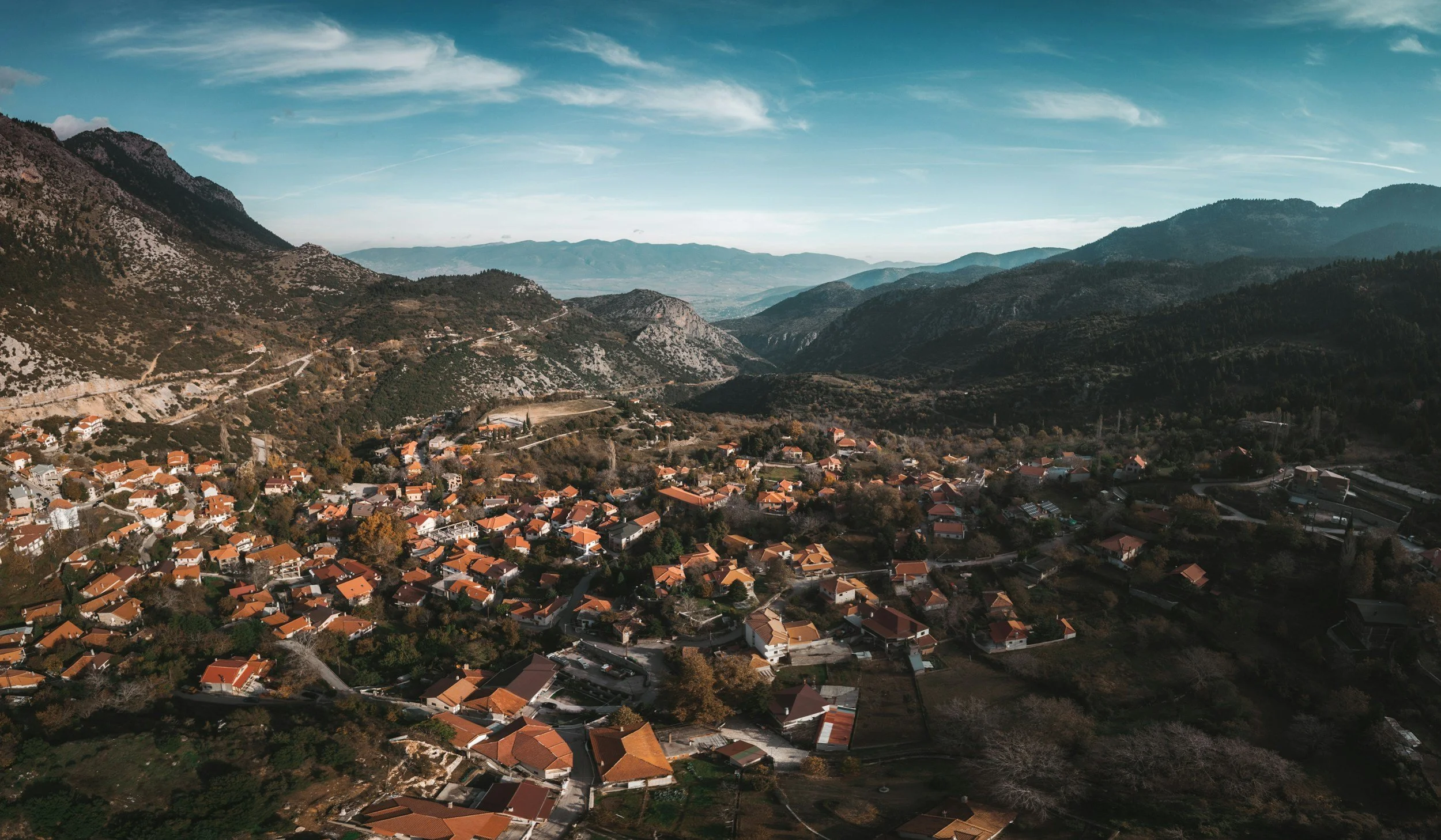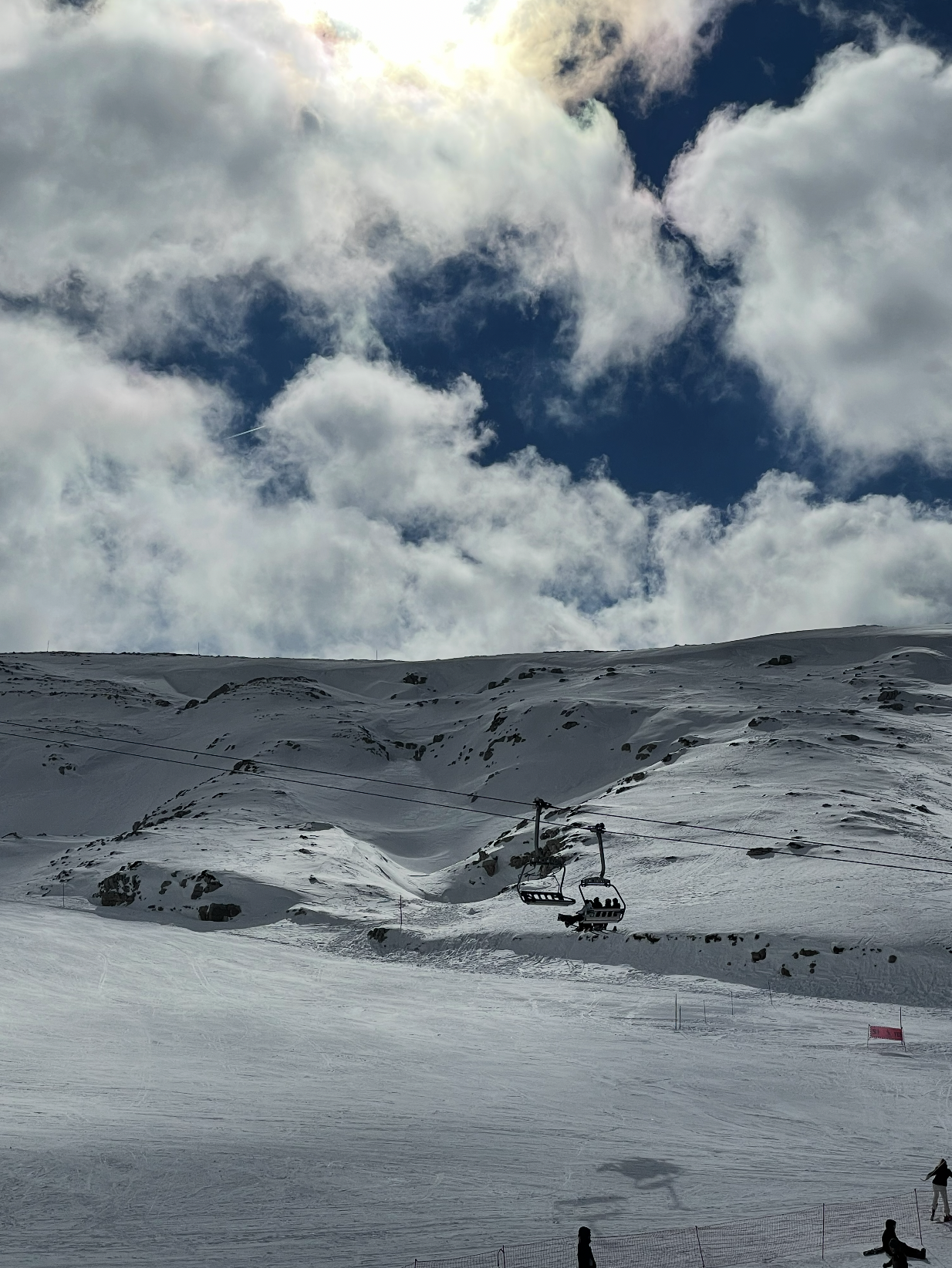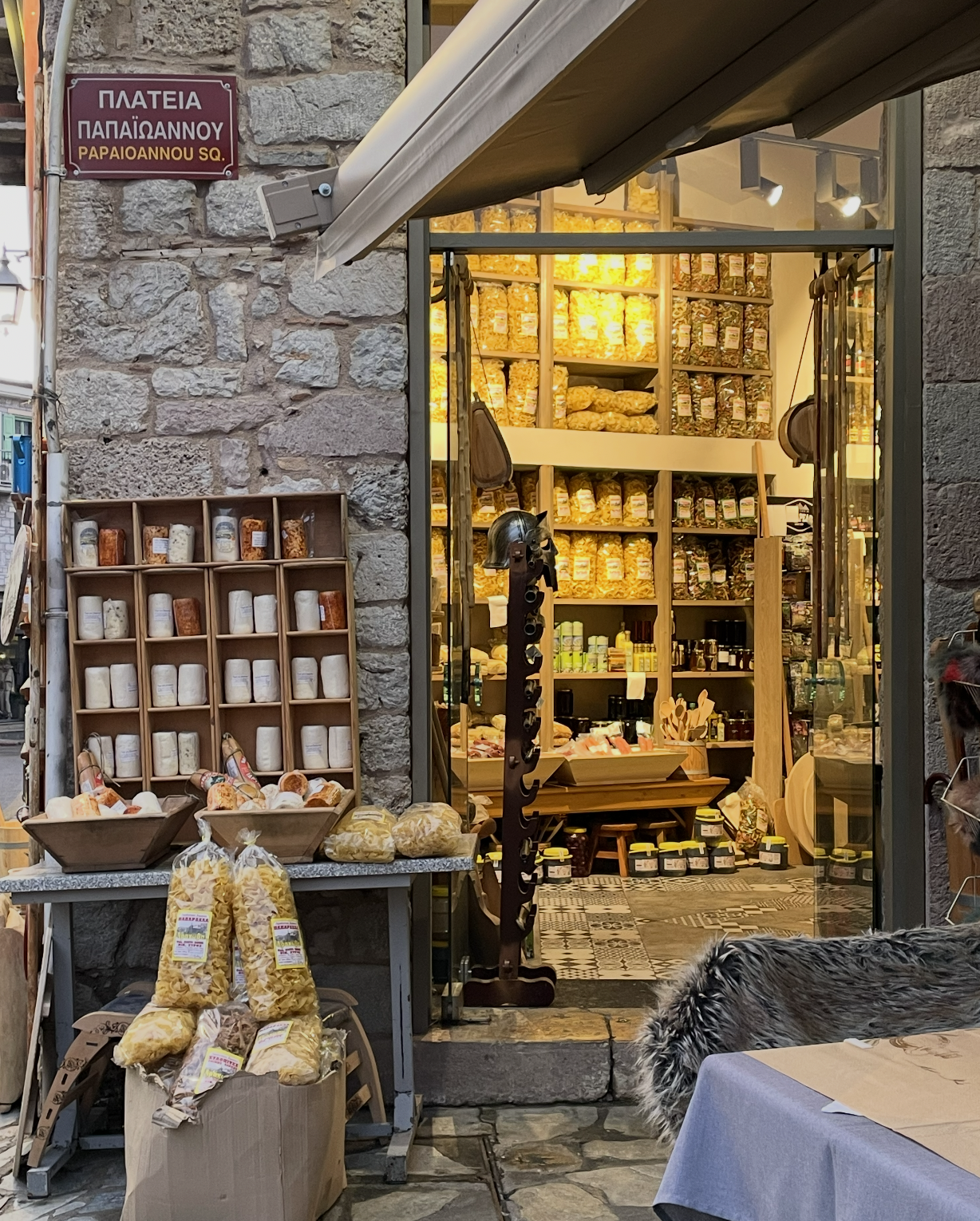Greece Ski Resorts: Why Winter in the Mountains Rivals the Islands
The usual story goes like this: Greece means summer. Whitewashed villages clinging to volcanic cliffs, azure water lapping at your ankles, taverna dinners that stretch until midnight. And yes, all of that is glorious and true and worth every overbooked ferry crossing.
But that story is incomplete.
While the rest of Europe queues for overpriced Alpine chalets, Greece transforms into something quieter, more contemplative, and frankly more interesting. The mountains fill with snow. Stone villages that bake under July sun become cosy refuges with roaring fireplaces. And in Arachova, perched on the slopes of Mount Parnassus, you'll find Greece's most compelling answer to the question: what happens when summer ends?
Apollo's Mountain, Now With Ski Lifts
Parnassus doesn't need much introduction if you've ever cracked open a book of Greek mythology. This is Apollo's mountain, home of the Muses, the place where ancient Greeks believed divine inspiration literally descended from the peaks. The Oracle at Delphi, just down the road, channeled prophecies in the shadow of these slopes.
What the ancients couldn't have predicted: two and a half millennia later, people would be schussing down those same mountainsides on expensive planks.
The Parnassus ski resort, Greece's largest and most developed ski center, sprawls across two distinct areas. Kellaria, the main zone, offers 19 runs and reaches an altitude of 2,260 meters. Fterolaka, the second area, adds another five runs and tends to hold snow longer into the season. Together, they make up Greece's premier winter sports destination, operating from December through March when conditions allow.
This isn't Verbier. The runs won't challenge Olympic contenders, and you won't find the après-ski scene that defines resort towns in Switzerland or Austria. What you will find is something rarer: mountains that feel like they still belong to the people who live beneath them, not the corporations that carved them up.
Arachova Has Been Here Longer Than Skiing
Twenty minutes from the ski resort, Arachova clings to the mountainside like it's been there forever. Because it has. This isn't a purpose-built resort town that materialized in the 1970s when skiing became fashionable. Arachova has existed since ancient times, its stone houses stacked along narrow streets that were designed for donkeys, not SUVs with ski racks.
The village operates on a different rhythm in winter. Athenians arrive on Friday evenings, fleeing the capital's noise for mountain air and the particular silence that comes with snowfall. By Saturday morning, the cafes fill with locals and visitors who all seem to know each other, or at least pretend to. There's something distinctly Greek about how Arachova manages to feel both cosmopolitan and utterly traditional at the same moment.
Walk through the village and you'll pass shops selling hand-woven rugs and butter-soft leather goods alongside boutiques that wouldn't look out of place in Kolonaki. Stop for lunch and order formaela, the local cheese that gets grilled until it's crispy on the outside and molten within, served with lemon and crusty bread that soaks up every bit of the oil. This is not fondue. This is better.
The accommodation ranges from family-run guesthouses where breakfast appears whether you asked for it or not, to sleeker boutique hotels with underfloor heating and mountain views. Book ahead for winter weekends. Arachova has roughly 3,000 permanent residents but swells considerably when the snow falls, and Greeks don't need much convincing to abandon their islands for their mountains.
It's Not Really About the Skiing
Here's what the tourism boards won't tell you: skiing in Greece isn't about the skiing. Or rather, it's not only about the skiing.
The runs at Parnassus are perfectly respectable. Intermediates will find plenty to occupy themselves, and beginners have dedicated areas to fall down safely while learning. Advanced skiers might wish for more challenging terrain, but they'll also appreciate the absence of lift queues that plague the Alps during peak season.
What makes Greece ski resorts compelling is everything that happens off the slopes. You can ski in the morning, drive 30 minutes, and wander the ancient ruins at Delphi in the afternoon. You can have lunch in a mountain taverna where the owner's grandmother is making the pasta by hand in the back room. You can sit by a fireplace in the evening and drink tsipouro with locals who genuinely want to know where you're from and why you came.
This is Greece's gift: the ability to layer experiences, to move between ancient and modern, mountain and sea, adventure and contemplation without ever feeling like you've left one coherent place.
The Other Mountains
Arachova and Parnassus may be Greece's most famous winter destination, but they're not alone. The mountains of northern Greece (particularly around Metsovo and the Pindus range) offer their own ski resorts and an even more remote, traditional atmosphere. Kalavryta in the Peloponnese has its own ski center and a rack railway journey that's worth the trip regardless of snow conditions.
But there's something about Arachova's proximity to Athens (just 180 kilometers, manageable even for a weekend) and its position near Delphi that makes it Greece's winter anchor point. You can fly into Athens, rent a car, and be in the mountains by lunch. Try doing that at most Alpine resorts without at least one connecting flight and a expensive transfer.
The Practical Bits
The ski season at Parnassus typically runs from mid-December through March, though this depends entirely on snowfall. Greeks will tell you the best conditions come in January and February, when the snow is most reliable and the temperatures haven't yet started their inevitable spring climb.
Equipment rental is available at the resort, though serious skiers might want to bring their own gear. Lift passes are considerably cheaper than their Alpine equivalents. Expect to pay around 25-30 euros for a day pass, compared to 60-70 euros at comparable European resorts.
The mountain can get busy on weekends, particularly when Athenians descend en masse. Weekdays offer quieter slopes and a more contemplative experience. The lifts open around 9am and close at 4pm, giving you just enough time to ski, shower, and claim a table at one of Arachova's tavernas before the dinner rush.
The Mountains Were Here All Along
Everyone wants to visit Greece. The islands are booked solid from May through September, prices inflate, and the particular magic that drew people to the Aegean in the first place gets obscured by crowds and commercialization.
Winter in the Greek mountains offers something different. Space, both physical and mental. The chance to see how Greeks actually live when they're not performing hospitality for foreign tourists. The pleasure of cold air and warm fires, of landscapes that feel genuinely remote even though Athens is only two hours away.
Skiing in Greece won't replace your annual trip to the Alps if you're a serious skier. But if you love Greece and haven't yet discovered its winter dimension, if you want to understand the country beyond its summer postcards, if you're curious about what happens to all those islands when the ferries stop running—then Greece ski resorts and particularly Arachova offer something worth discovering.
The mountains, it turns out, have been here all along. We've just been too distracted by the sea to notice.




